Hello!
This year, I set a goal for myself: I wanted to spend at least 4 hours a week reading. Not just reddit comments, mind you, but actual texts in print. Over the last few years, I’ve been participating in a book club (lovingly dubbed “Philosophy Symposium” by its members), which helped to spur me on to read by, well, having to, in order to participate. I know when I read a book, I feel a great sense of accomplishment, and enjoy the afterglow of reflection and revelry, particularly when I can discuss such a text with peers. However, I also wanted to make space for myself to read texts not only when it was required of me. I want to allow myself to do things I find enjoyment in, for myself. Thus, I made it a point to try to set aside more time. It has not been easy; in a time of easily and readily palatable mass media and news, it can feel like a Herculean struggle to force oneself to sit silently and read, not just articles and memes and comments but actual long stretches of text (and to mitigate the tame horror at such a commitment). I have had to retrain my brain to allow for a longer attention span after years of allowing it to atrophy in favor of fast food-like media, and it’s been quite difficult, and still is; that said, here I will document the list of texts I allowed myself to consume this year, and some brief reflections on them.
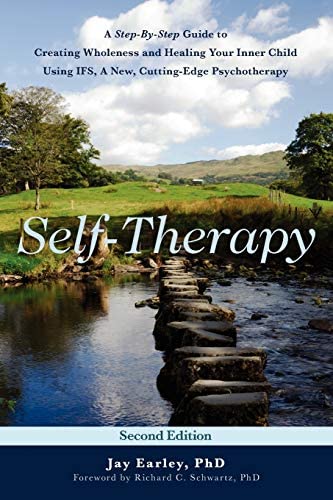
Self Therapy by Jay Earley
I don’t often read self-help books, as I get kind of burned out on therapy stuff 24/7. However, this book I found not only helped me to help folks, it also contributed to my development in focusing my brain in another direction regarding how to view internal conflict and those unhealthy patterns of behavior we wish we’d just stop already, but also did so in a way that made me want to complete the exercises within and continue to reflect on my own wellness and healing. I honestly cannot speak highly enough of this book. It’s accessible, easy to read, with wonderful and relatable examples and illustrations to get the concepts across. It’s spurred my development and encouraged my understanding of self, as well as forgiveness of some of my pesky parts and patterns.
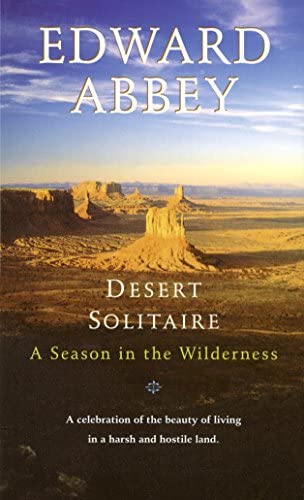
Desert Solitaire by Edward Abbey
I picked up this book because I’m an avid fan of travel writing an am deeply in love with the subject of this work, Moab Utah. I enjoyed Abby’s writing, particularly in the beginning; he begins the book by cautioning readers, “Do not jump into your automobile next June and rush out to the canyon country hoping to see some of that which I have attempted to evoke in these pages. In the first place you can’t see anything from a car; you’ve got to get out of the goddamned contraption and walk, better yet crawl, on hands and knees, over the sandstone and through the thornbush and cactus. When traces of blood begin to mark your trail you’ll see something, maybe. Probably not. In the second place most of what I write about in this book is already gone or going under fast. This is not a travel guide but an elegy. A memorial. You’re holding a tombstone in your hands. A bloody rock. Don’t drop it on your foot — throw it at something big and glassy. What do you have to lose?” Abbey has a talent for describing existing in the present; tale of fortitude and self-reliance, communing in nature in ways that feel taboo and disallowable, yet are entirely necessary to existence as a creature on this Earth. It reminded me of times that I permitted myself to simply exist, rather than to accomplish, times which were important for my mental health and wellbeing. After much reading, though, I found my patience for Abbey growing thin, as he beats the dead horse of his dislike for civilization and critique of modernization of the outdoors — I get it, I read it, I’ve seen it, and time keeps marching on anyway. Abbey accomplishes this point and more, and yet humans continue to remain ignorant in their tacit destruction of the environment. I’m sure he’s rolling in his grave.
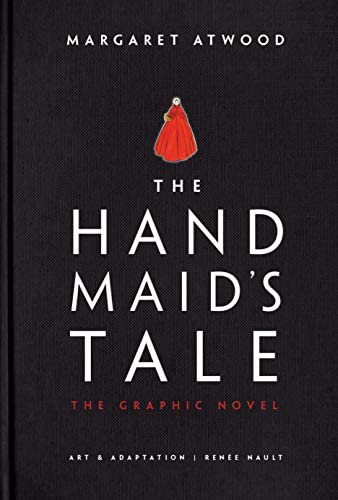
The Handmaid’s Tale by Margaret Atwood
This has been a book I’ve been meaning to read for years but had been putting off. I finally bit the bullet when, visiting a kitschy small-town bookstore, found that it had been adapted into a graphic novel, a medium I find endlessly more palatable to my destroyed ability to maintain attention. I made time to read it when, enraged and disheartened by the leaked Supreme Court decision concerning Roe v. Wade, it would prove to be most salient. I read this book in a sitting and then had to sit with myself after to process the harrowing experiences depicted within endured by women. The artwork in it is extraordinary and touching, and I found the adaptation to be well-done. I’m finding myself in a more feminist frame of mind this year, and have been looking to consume media to empower and resolve myself to doing more to uplift women, lgbt folks, and others left behind by our patriarchal system. This book felt like an important read, like looking at an accident in motion, necessary to understand the workings of what could be happening in order to gain a better understanding while still suffering some of the mental blow and anguish. I also watched the hulu adaptation of Atwood’s work, and found it to be extremely troubling; yet, consuming stories of misery and woe also feel preparatory somehow, particularly in a year where civil rights continue to be threatened. If anything I found that partaking in this media as well as its associated reflection, while retraumatizing in some ways, also served as a bridge to relate to others who also have read this book or seen this show, and to welcome in a larger conversation about civil rights and activism, and for that I felt grateful.
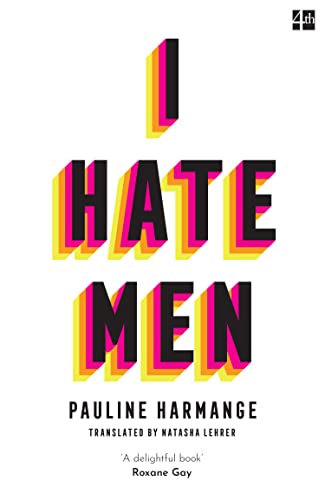
I Hate Men by Pauline Harmange
Intrigued by the title and recommended this book by another feminist reader, I purchased it, figuring I could learn something about either side of the argument surrounding the potentially divisive title of this book of essays. I read this book in a single sitting. This book examines cultural divides between folks of varying gender, and offers a critique of cisgender white men’s place in society and the examines the prescribed necessity of persons outside of this group to orbit standards set out by men and act as placating caretakers. I found myself nodding with many observations the author made, particularly around comparisons of misogyny and misandry ringing false in the wake of gendered violence disproportionately affecting folks who are not cis men, as well as discussions on disparities in household work and weaponized incompetence, which I discussed in a journal post earlier this year. The author offers a message of forgiveness and context to allow folks who have felt feelings akin to misandry, classifying it as a reasonable reaction in context to a culture that disproportionately hurts and victimizes women and marginalized groups while cis men largely escape unharmed, or benefit from related privilege. I agree with the premise of allowing oneself to decentralize one’s role from others, in this case decentralizing one’s role as a woman away from the male gaze and prescriptive norms around “having to” attract a mate in order to make one’s life “complete.” I also appreciate the ever-present reminder to continue to encourage bonds with other women, an act which has served to make my life richer in this past year.
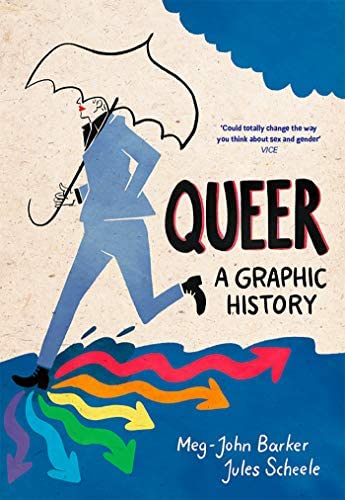
Queer: A Graphic History by Meg-Jon Barker and Jules Scheele
This book is not only packed with rich history and theory about queerness, LGBT stuff, and gender, but also amazing and vibrant illustrations that can help readers (like myself) who have found themselves with shorter or harder-to-grab attention spans. That said, I appreciated this book because, although I am familiar and quite versed on many things sex and gender, the book also helped to break down queer history in theory in such a way that there was more richness and understanding added to my knowledge in these areas. I always appreciate opportunities to deconstruct societal scripts around sex and gender, and this text helped to deepen my knowledge and thought on this while also giving me more directions to source material and scholarship from for continued reading purposes. I highly recommend it for folks looking to get into queer theory or learn more about history of scholarship and activism related to sexuality topics.
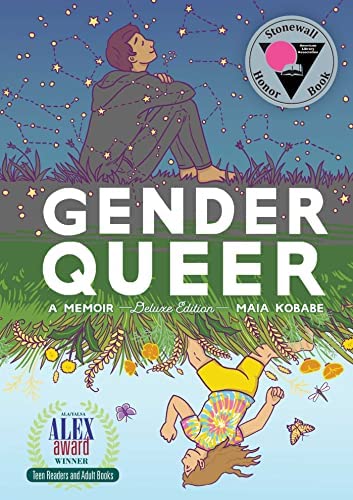
Gender Queer: A Memoir by Maia Kobabe
Maia’s reflections on gender, sexuality, and growing up queer have been important to observe and reflect on and also echo many similar experiences that I and loved ones have experienced when growing up in a culture that’s largely cis and straight, leading those who don’t fit the mold to feel like outsiders. I appreciated the reflection that has gone into this work and the feeling I’m left with after observing the author’s growth and development, that community is of major importance when pursuing one’s own identity and self-acceptance. Maia sums this up in an eloquent, touching, and artful memoir that is both a quick read and a deeply impactful look at queer identity in context.
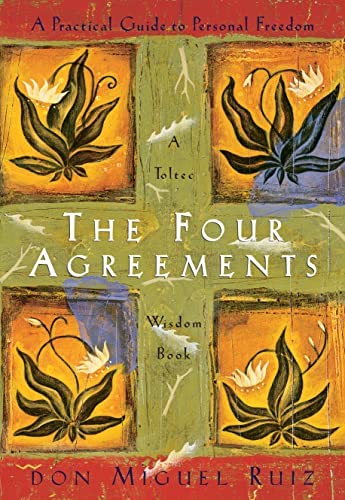
The Four Agreements: A Practical Guide to Personal Freedom by Don Miguel Ruiz
I’ve had this book sitting around for a while, and finally read it because it was an ongoing joke in the TV show Barry. I was like hey, what the hell, I might as well check it out since I’ve heard so much about this book. It’s a short read, and reviews four tenets to change the “agreements” one makes with oneself, prodded on by societal norms and scripts. The book urges readers to be mindful of what they say, not to take things so personally, not to make assumptions, and to always try one’s best. The book frames its tenets around self-forgiveness, neuro-linguistic programming, and the law of attraction, it seemed to me upon reading it. Some of its lessons or examples I found to be a bit too “granola-y” but that’s certainly my personal take and reflection on it (for example, I don’t believe that speaking about cancer speaks it into existence for a person). However, I do agree with the lessons within including self-forgiveness, zooming out to see things in context, trying one’s best, speaking with care and tact, reframing ideas, and so on. I can see why it has become popular with folks and is hailed as a positive self-development text; it echoes a lot of the work I do both personally and professionally, and for that, I feel grateful that the book is readily accessible to so many.
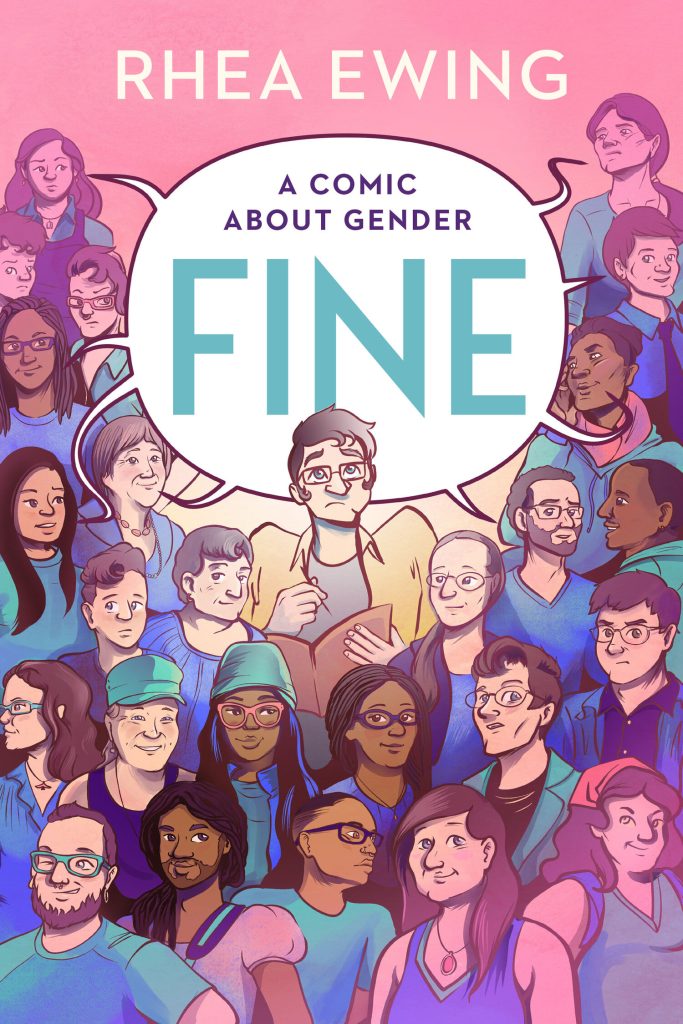
Fine: A Comic About Gender by Rhea Ewing
I’m loving how many queer graphic novels are popping up all over the place, and really feel these would have been extremely valuable to me in my youth. This book is part memoir and self-reflection, and part qualitative narrative study about a variety of folks’ relationships to gender and culture. It is warm, and thought-provoking, and made me reflect on my experiences with gender and sexuality in context of culture. I enjoyed reading stories I related to, stories that made me expand my viewpoints on things, and stories I didn’t necessarily agree with entirely. This book enabled my self-reflection and growth and for that, I appreciate it as a resource, both for cis and trans folks alike. It also hammered home the intersections between gender, culture, and race, which many texts fail to mention — this is a disservice to folks “coming at” gender from a variety of life experiences, and helps to break down barriers of privilege and whiteness that shape discourse on transness and genderqueerness. I know I have benefitted from this look, and reading and reflecting on this text will help me to have continued conversations with folks about gender in context.
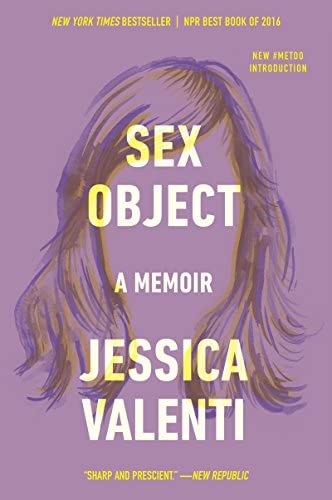
Sex Object by Jessica Valenti
This book caught my attention while at Powell’s books in Portland, OR. While traveling and not having enough space in my luggage to be frivolous about book purchases, I hurriedly picked it up once at home, and then eagerly stared at it on my bookshelf with great anticipation until cracking into it one fated afternoon. It held my attention so well that I finished it in one sitting. But, in a post Roe v Wade reversal world, I feel a lot of fire in me to embrace feminist roots, and read readical lit. This book delivered on the validation and affirmation of experiences had while female, including the trials and tribulations of living in a culture and society that aim to separate us from our being, to victimize and objectify. At the book’s opening, Valenti says, “Who would I be if I didn’t live in a world that hated women? …I’ve long been mourning this version of myself that never existed.” This sentiment felt so familiar to me, albeit one that had gone unspoken, lurking about in the ether in my mind; that living in this culture has changed me at my core, yet remains imperceptible due to my constant enmeshment in it. I want to feel like there’s a better way of being, one where I don’t feel I have to anticipate violence for my own self-protection, yet the idea of dropping a protective, hypervigilant part feels hard, and also dangerous while still living in a time where true equality has not been realized. This began reading Valenti’s memoir, and nodding and highlighting along the way, which is an experience I’ve longed for in books since first grasping it as a child. I appreciated the stark realness of her descriptions of experiences she has had, and relationships she has endured, in the journey of becoming an “out” feminist in a culture that still views it as another f-word. Valenti’s work is not for the faint of heart, and certainly can be triggering to those who have experienced cultural, sexual, or dating violence. But it also weaves a thread of strength through these tales, of anger and mourning and empowerment and realness in speaking truth into the experiences of many, and the numerous ways society and culture must adapt before truly getting it right. This read left me wanting more, as it was lighter on the social commentary than I would have liked, however, I found myself thinking back on the stories within and filling in the blanks with my own self-reflection.
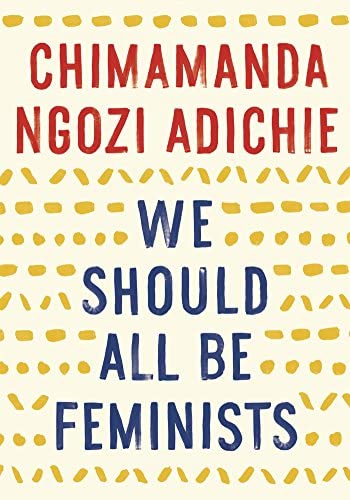
We Should All Be Feminists by Chimamanda Ngozi Adichie
In the same vein of wanting to read feminist lit this year, I also wanted to expand beyond white feminism, and found joy in reading Adichie’s book. It’s a short, fast read, with powerful storytelling and messaging within. The stories were relatable and recognizable despite the differences between my lived experiences and the author’s, particularly her discussion around folks downplaying the “need” for feminism in a supposedly post-equality culture or society. I could relate in huge ways to this; if I’ve been told my whole life that equality has been achieved, how come I kept having weird, fucked up experiences that my male peers have not?! Adichie makes a salient point that by uplifting women, societies benefit across the board, for all members, including those who are not women. I find this message to be important and powerful particularly as it bridges the gap in the divisive language of tribalism that feels particularly insidious, slowing down progress that again, would benefit all members of society.
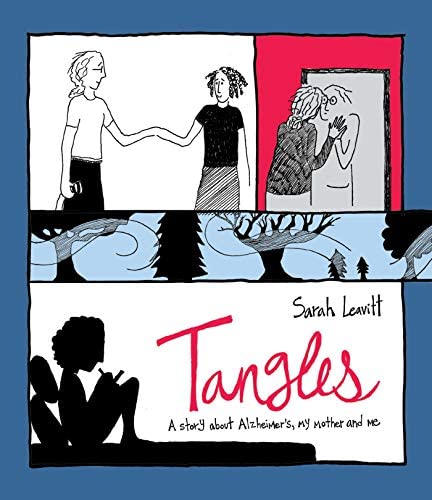
Tangles: A Story About Alzheimer’s, My Mother, and Me by Sarah Leavitt
I adore graphic novels as a medium for folks to compose memoirs, as they have an added personal touch of including the author’s graphic works as well as words. I’ve picked up quite a few this year, and greatly enjoyed this book, which tackles the author’s struggle with her mother’s Alzheimer’s diagnosis. Leavitt’s love for her mother comes through in a series of memories, mundane and monumental as well as heartrending and hopeful. I found myself mourning her relationship with her mother alongside her, while longing for a similar sort of connectedness with a beloved family member.
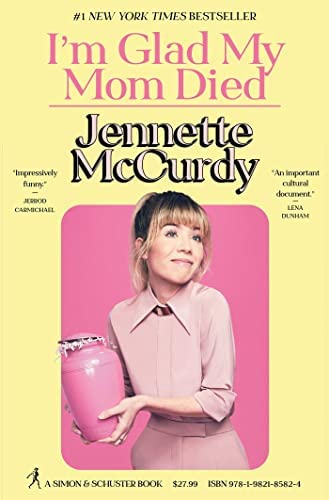
I’m Glad My Mom Died by Jeanette McCurdy
You’ve likely heard of this book, and that’s because it’s fucking great. I was drawn in by the eye-catching title, having not really known McCurdy for her acting work. I’d heard some interviews about the book prior to its release which made me want to check it out even more, and so I picked it up right after its release, which generally is unheard of by me. I’m so glad I read it and was able to discuss it with a book-reading crew in my corner, because whew! McCurdy explores her upbringing and experiences in acting as a young person, but more than that she deconstructs the trauma of growing up under an abusive parent and the related fallout that still affects her to this day. McCurdy does not often pass judgment in her writing — she starkly lays out situations and experiences and allows the reader to draw their own conclusions — this push to allow readers to relate and react to the text on their own terms felt powerful and inclusive particularly as a millennial in the therapy realm who unpacks shit often. It allows folks to learn alongside Jeanette about their own people-pleasing fight-or-flight fawn behaviors in a soft, paced way. It also hits readers hard with triggering but relatable subjects such as childhood trauma, abuse, eating disorders, body image, sexuality, narcissistic parents, and mental health. I deeply enjoyed McCurdy’s exploration of self in therapy and the truth that it takes a few tries and a lot of effort to get it right here and there, but ultimately healing is possible.
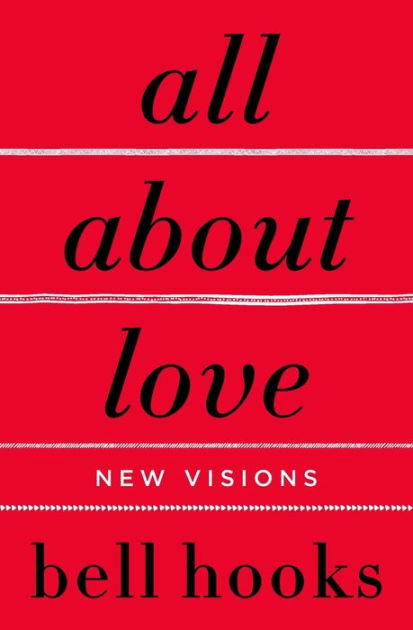
All About Love by bell hooks
I think about love a lot. I enjoy giving it and receiving it and looking for it in my life. And I really appreciated the opportunity to read some of the late and great bell hooks’ exposition on love because it framed love in ways I’d not experienced prior. hooks frames love using scholarship and anecdotal experience as “the will to extend one’s self for the the purpose of nurturing one’s own or another’s spiritual growth.” hooks breaks down other experiences commonly thought of as love, such as providing care for someone (as in a parent’s role in childhood) or having many shared experiences together, called cathexis (as one would in a long-standing relationship). She demonstrates that one can have these experiences in conjunction with love, but also that one can have these experiences in an environment that is objectively lacking in love, causing confusion in the person, who may be navigating feelings of hurt, or needing to process these experiences to redefine love in their lives so that they may then fully engage lovingly with another person. As someone who has had troublesome experiences that were called “love,” I appreciated the opportunities this book provided for self-reflection, growth, and redefining love as an act. Furthermore, bell hooks breaks down power dynamics as present socially and in situations of control and abuse, emphasizing that love cannot exist where power is unbalanced or abuse is occurring, disrupting the age-old rhetoric of “but it was just because I loved you so much that I acted in that way.” She says, “Love is a combination of care, commitment, knowledge, responsibility, respect and trust.” Reading this book has enlivened my desire to continue to do better in my life and that means extending love better, both by healing my own experiences and being more mindful about the energy that I choose to put out to those whom I wish to love fully.
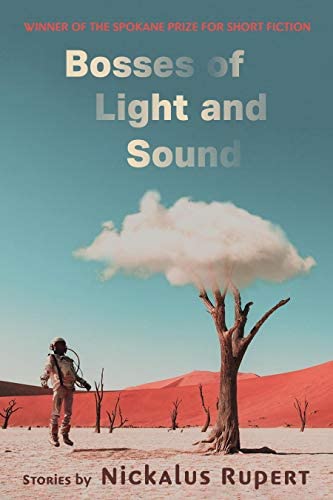
Bosses of Light and Sound by Nickalus Rupert
As aforementioned, at times this year I found it hard to engage with full-length novels while still doing just fine reading reddit comments for, like, five hours. So I figured, getting into short fiction might be a good way in. I read some various authors in the Beloit Fiction Journal, and really enjoyed the writing in it by Rupert, who uses words in a phenomenal and fun brain-wrinkling way. I found his short fiction to be accessible when the idea of devoting a large chunk of time to reading felt daunting, and also found it gripping, thought-provoking, and very enjoyable.
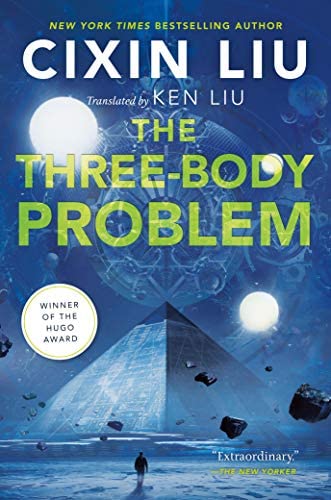
The Three-Body Problem by Cixin Liu
Hey, I read some science fiction! This book came to me extremely highly recommended by a good friend and fellow thinker from Seattle. Firstly, I found myself reflecting on how little of that which I read comes from cultures varied or different from my own, as Liu’s work takes place in China from a perspective deeply different from that which I unconsciously use to read and interact with the world. I had to put effort into learning about another place, way of being, and mindset that allowed me to extricate myself from my unthinkingly deeply American way of being, which I did appreciate; although it took effort, this mental exercise was well worth it, like stretching after a long time of remaining sedentary. That said, this book gripped me unlike one has in a long time, and I read it over the course of three harried days, and am thrilled to report I chose reading it over almost any other activity I could have pursued, which is the highest praise I can give. I found myself feeling horrified, dealing with existential fear and dread, and also intrigued, enjoying grappling with scientific topics and theories I’d not been immersed in since school. I felt like my brain was exercising while reading this book, visualizing that within. This book deals with first contact with alien life, in a roundabout way where I kept flipping, wondering where the fuck the aliens were. It’s a deep look at human nature, culture, and society, and the different manners in which we as humans would act in this situation, and how we feel about our fellow human, particularly as it relates to the traumas we’ve experienced at the hands of our peers. While I felt horrified at the actions of some of those in this book, I also found myself feeling empathy for their experiences in context. I’m greatly looking forward to the next two books in this series, which I understand are even more enjoyable and intriguing.
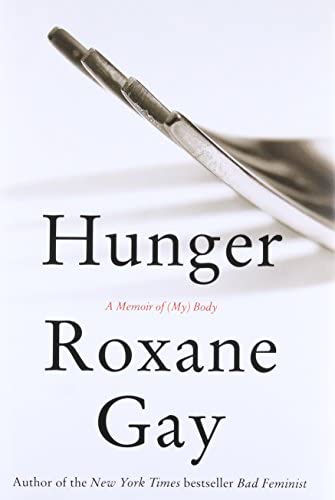
Hunger: A Memoir of (My) Body by Roxane Gay
I knew little to nothing about this book prior to diving in, save for that it was a monumental feminist memoir and deals much with body image and weight in our culture. I found myself gripped from this book’s onset, where author Roxane Gay is upfront and brutally honest about her experiences with her weight, her body, and the trauma of childhood rape that led her there. Gay examines the role trauma and a need for safety play in one’s relationship with one’s body. I found myself wishing that all those who saw her gaining weight rapidly as a young person, instead of prescribing diets and weight-loss fads, had instead sat with her more, and contributed to her emotional well-being. Like Jeanette McCurdy in the book referenced above, Gay also attended therapy, at a time that was “too soon” for her ability to access the lessons within, which I again appreciated very much. Gay shines an honest light on the way our society treats bodies and weight, and the feelings resulting in her because of this. Much of what she espouses in this book rings so true, as a person who has also struggled with body image, weight-loss fads, and harsh self-judgment. I found myself reflecting on the idea of holding oneself back, too — from enjoyment, from pleasure, from acceptance and forgiveness, from taking up space. Gay speaks of desire, for food, for pleasure, for love — and also of the real and social consequences of those desires. She also speaks of her own sexual development, and her process of mourning on how her victimization has shaped her life, self-worth, relationships, and desire.
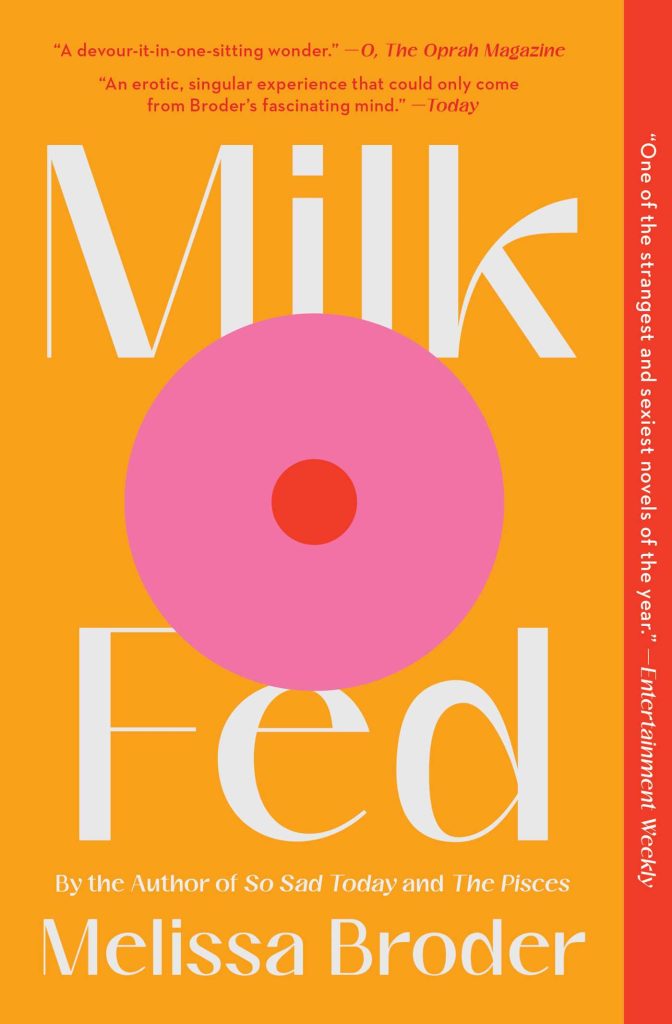
Milkfed by Melissa Broder
Melissa Broder’s book isn’t for the faint of heart and immediately threw me into the world of Rachel, a person fixated on eating and restrictive denial of the pleasures of eating, as she explores the eating disorder her mother passed down to her. She discusses the rituals of restricting that bring her safety and order counterbalanced with the desire for pleasure. Rachel is broken out of her self-imposed prison when she meets Miriam, a zaftig woman intent on sharing life’s pleasures with her. This book is a bizarre exploration of bisexuality and eating in a culture that demands restriction in both. I found myself deeply uncomfortable at times while reading Rachel’s descriptions of her brazen appetite, both for sex and food, and found myself reflecting on this throughout the novel, whereas I found I identified much more with her partner’s warm, comfy, generous, and patient state of being. Another central theme in this book is the speaker’s lack of mothering that she feels failed her inner child leaving a wound of abandonment and an appetite for nurturing and approval, and her continual search for sexual partners to fill that void, which I found to be distracting and uncomfy as well. This gave me pause to reflect on my relationship with my own sexuality and partnerships and found I could not relate to Rachel’s brazen nature, as to me it feels that that leaves little room or empathy for the experiences of others. The speaker’s relentless desire and appetite for others, and mainly Miriam’s body, felt self-centered and while this conveyed the all-consuming nature of her experience, I found my discomfort to be rooted in wondering how Miriam was doing and whether she would feel uncomfortable if she was exposed to the monologue happening inside Rachel’s mind, as I would have felt uncomfortable bearing the weight of objectification and judgment that seemed so present throughout the book. I listened to this book as an audiobook read by the author, and believe I may have found the tone more relatable had I read the print version instead, as I may have been better able to separate my own projection from the content of the book.